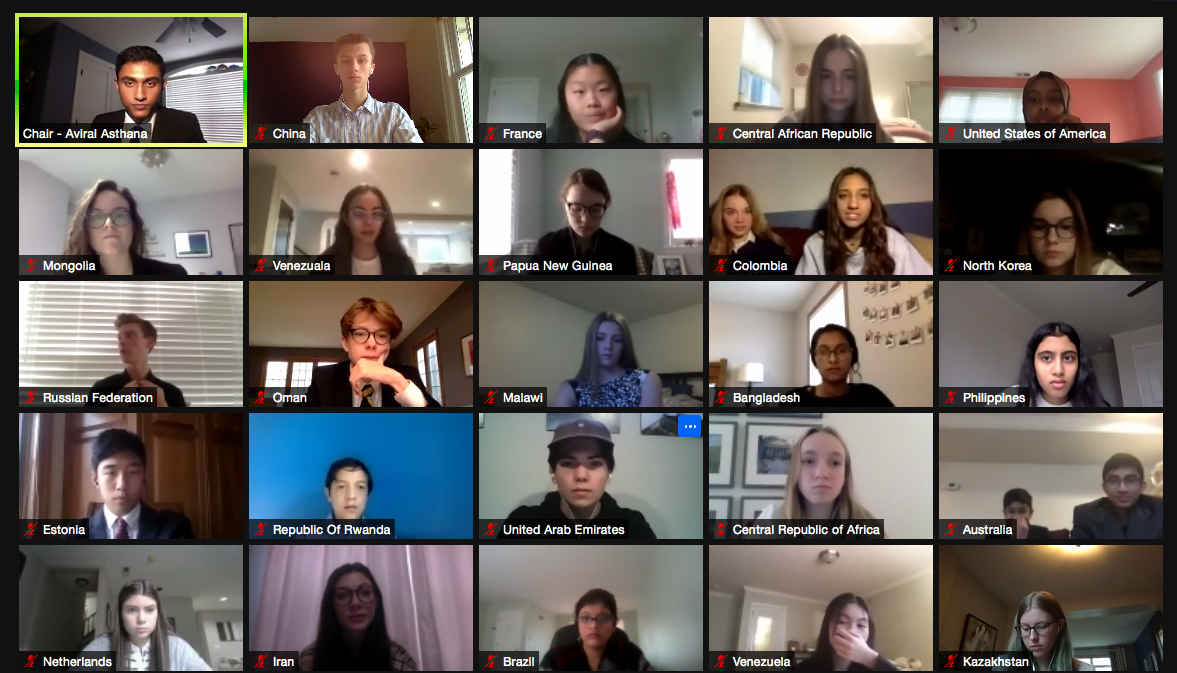Chapter Spotlight: UNA Minnesota
Every year, hundreds of thousands of students around the world participate in Model United Nations conferences. Through various mediums including simulations and workshops, Model UN strives to teach students about the operations of the UN and real-life scenarios that the organization dedicates its time to on a regular schedule. Model UN also allows for its participants to strengthen their public speaking, problem-solving, and analytical skills.
Since the pandemic began in March, thousands of Model UN organizers have had to either cancel their programs or take steps to move their platforms online. Hosting a virtual conference requires finding a way to make students feel as though they are not just staring at a screen, but are physically in each others’ presence, debating and collaborating. Recently, UNA Minnesota hosted its first virtual Model UN conference — successfully gathering over 260 high school students. The conference began with a world trivia challenge hosted by Global Minnesota, followed by a keynote address from Jahan Rifai, a UN75 Strategic Communications Consultant. Throughout the day, students participated in meetings and breakout sessions to debate issues and draft resolutions on issues including—but not limited to—humanitarian relief, the right to self-determination, and peacekeeping operations. The end of the conference recognized the hard work of all participants and presented awards for best position papers and delegations.
Over the past few years, our youth have increasingly become more engaged in politics and advocacy. They are now crucial actors in holding people, politicians, and government accountable for the world they are leaving behind. The organizers of UNA Minnesota have long upheld the mission to incite youth engagement and activism by preparing their members to be good, participatory global citizens. Founded in 2005, the leaders of the Minnesota Model United Nations program have adjusted their logistics to several changing circumstances throughout the years. When met with the limitations of online communication and unpredictability of the global pandemic, they once again took necessary, successful measures to execute a fruitful student conference. Currently, they serve more than 25,000 students.
The main reason for the successes of the chapter was in their unwavering belief that UN engagement will inform youth on the procedural pathways to conflict resolution in global challenges. UNA Minnesota Chapter Vice President Jonathan Hein says:
“Through engagement, people learn that not all problems can be solved by more economically developed countries paying for solutions in less economically developed countries; they come to understand that researching solutions by talking to others and listening for the best ideas is valuable; that the world community has many perspectives; and that winning through cooperation is a real possibility.”
By hosting consultations, grassroots campaigns, and chapter projects, the UNA Minnesota Chapter has addressed issues ranging from climate change to racial injustice. Through research, debate, and collaboration, the UNA Minnesota Chapter has extended its vision to a broad population of the youth community and will continue its efforts to advocate for global cooperation.




